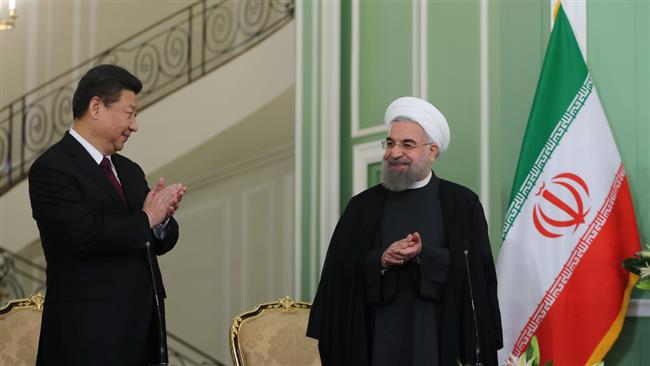by Emma Scott
Earlier this month, China underlined its commitment to the Iran nuclear deal (also known as the Joint Comprehensive Plan of Action or JCPOA). In a statement by Foreign Ministry Spokesperson Hua Chunying following Prime Minister Netanyahu’s “Iran Lied” presentation, China reiterated the role of the UN Security Council and the International Atomic Energy Agency (IAEA) in the agreement. China rightly pointed out that the IAEA had verified Iran’s compliance with the accord on no fewer than 10 occasions, that the JCPOA put in place the strictest monitoring and verifications measures on the Iranian nuclear program, and that all parties should implement and safeguard the accord.
Last month, both China and Russia in the Preparatory Committee of the 2020 NPT Review Conference issued a joint statement on the JCPOA. In addition to confirming their support, the two countries said that the JCPOA contributed to strengthening the global non-proliferation regime and demonstrated that non-proliferation issues can only be addressed through diplomacy—in marked contrast to Donald Trump’s approach. They emphasised the need for all parties to implement their commitments under the accord and to refrain from actions that undermine implementation of commitments.
Also last month, China hosted the latest nuclear energy cooperation seminar with Iran. All representatives from the P5+1 countries participated, including officials from China’s Atomic Energy Authority, China’s Ministry of Foreign Affairs, the Atomic Energy Organisation of Iran (AEOI), as well as the IAEA. The event was a reminder that the China National Nuclear Corporation (CNNC) is the contracting party for the redesign and renovation of the Arak heavy water reactor. The core of the controversial reactor was removed as part of the JCPOA, and the redesign is expected to be finished within the next three years. China will not want that contract and cooperation jeopardized.
A Trump withdrawal from the JCPOA would put it at loggerheads with China over Iran within the Security Council. From the mid-1980s to the late 1990s, China played a part in Iran’s nuclear program. By the time the controversy over Iran’s undeclared facilities broke out in 2002, however, China had distanced itself from the program. From the start, China wanted the nuclear dispute resolved diplomatically, tried to position itself as a neutral partner in the P5+1 talks with Iran, and welcomed the JCPOA.
Last year, the US continued to sanction Chinese individuals for participation in Iran’s ballistic program. China has continuously opposed these measures, complaining about their extraterritorial nature. If there is an American withdrawal when the IAEA has found Iran to be in compliance with the accord, it will be difficult to convince China to jump aboard another coalition campaign for sanctions against Iran.
Emma Scott is currently a research assistant with Project Alpha in the Centre for Science and Security Studies, War Studies Department, Kings College London. She also works on communications with the European Middle East Research Group, an Iran focused group. She is a former assessor and peer reviewer for Transparency International’s Defense and Security program. Her work on Iran has been featured in Europe’s World, LobeLog, Foreign Policy, World Politics Review, and with the Middle East Institute in Washington.






There is talk of negotiating a new and tougher deal with Iran.
Perhaps part of the deal could include international inspections and verifications of Israel’s nuclear weapons programs?
China’s position and adherence to the agreement should make Macron,May &Merkel crawl up into their beds of cowardice and hypocrisy. The disgusting and shameful way they are caving in to AIPAC (oh I meant the U.S. government) is mind blowing. I hope for once Trump will deviate from his desire to undo everything Obama did . It’s time to inspect Israel’s nuclear program.
Emma Scott’s piece is a good contribution to the discussion. Too often China’s part in the Iran case is neglected. I for one was glad to learn about the status of the Arak redesign project, and the serious Chinese interest in it. With the US withdrawal from the JCPOA, I assume the US will no longer be invited to be part of the oversight of that project.
Also of note, I assume the US should no longer be part of the JCPOA Joint Commission.